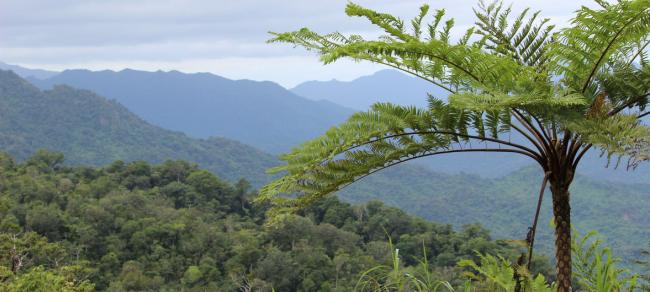
New UN agency guidelines aim to sustain forest benefits for future generations
New York, May 11 (IBNS): New guidelines designed to give poor and isolated communities more of a say in how tropical forests are used and preserved around the world were published on Thursday, by the Food and Agriculture Organization (FAO).
The FAO is the lead United Nations agency on the sustainable use of forests, and the voluntary guidelines refer to so-called forest concessions; laws and policies that allow local communities and private individuals or businesses to use forested land in return for payment or services.
The aim is to make these concessions “more transparent, accountable and beneficial to some of the poorest communities in the world”, said the agency.
It is hoped that by adopting the guidelines, countries in tropical regions will be able to curb abuse of forest land due to poor management; corruption and bribery; tenure disputes, and the harassment of local communities.
“If well managed, forest concessions can have multiple socio-economic and environmental benefits and increase the value of standing forests for present and future generations,” said Eva Muller, the head of Forestry Policy and Resources Division at FAO.
“All in all, they can improve the lives of rural communities in some of the poorest and most isolated parts of the world.”
When well managed, forest concessions can curb deforestation and reduce forest degradation. They can also reduce carbon footprint and combat climate change, while increasing employment opportunities and services in local communities.Forest concessions at work
Proper concessions also add to local and national revenues, which can in turn be invested in development, health and services.
A good example is the Borneo Initiative, a foundation established in 2008, which has provided financial and technical assistance to concession-holders linking them to a professional network of experts to guide them through the process. It has already led to an increase of more than 2 million hectares of natural forest across Indonesia.
Another example is in Guatemala, where concessions are providing direct financial benefits to local communities and have generated more than 16,000 jobs, which in turn brings additional economic benefits.
Verification
The guidelines - formally entitled: “Making forest concessions in the tropics work to achieve the 2030 Agenda” - build on best practices from around the world, and are based on consultations with more than 300 technical experts from the public and private sectors, together with civil society representatives from Africa, the Asia-Pacific region and Latin America.
A self-assessment tool is one key recommendation, whereby concession-holders and local communities can verify if their agreements will encourage the sustainable use of forest land.
The guidelines were launched on the margins of the 13th session of the UN Forum on Forests, which has been taking place this week at UN Headquarters in New York.
FAO/Rudolf Hahn
Support Our Journalism
We cannot do without you.. your contribution supports unbiased journalism
IBNS is not driven by any ism- not wokeism, not racism, not skewed secularism, not hyper right-wing or left liberal ideals, nor by any hardline religious beliefs or hyper nationalism. We want to serve you good old objective news, as they are. We do not judge or preach. We let people decide for themselves. We only try to present factual and well-sourced news.







